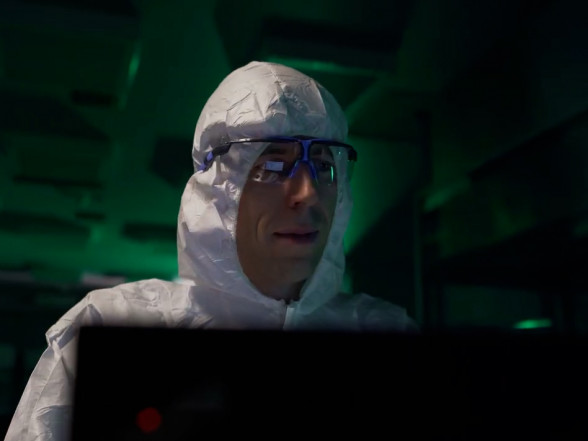On October 15, the Latvian National Television broadcasted a 15-minute program Aculiecinieks (Eyewitness), which was devoted to organ-on-a-chip technology developed by researchers of ISSP UL’s Laboratory of Micro and Nanodevices and Latvian Biomedical Research and Study Center’s Outside the cell vesicle and microfluidics research group.
In the program, researchers tell how the technology works and explain its uniqueness. In gut-on-a-chip, Latvian scientists have fully replicated the human gut’s airless environment. In the future, this technology will allow harmless drug and vaccine candidate testing, the development of personalized medicine (finding the best treatment for each individual), and replacing animals in drug tests.
An organ-on-a-chip (OOC) is a multi-channel 3-D microfluidic cell culture chip that simulates the activities, mechanics, and physiological response of entire organs and organ systems, a type of artificial organ. Organs that have been simulated by microfluidic devices in the research of the scientists from ISSP UL and BMC include the lung and gut.
Aculiecinieks is a Latvian National Television program made by news service journalists. It tells personal stories about events and special people by our side - rescuers, scientists, historians, teachers, urban gardeners, and many more.
The written story in Latvian is available from the Latvian Public Media portal (lsm.lv) here.
The recording of the Aculiecinieks program in Latvian is available here.



